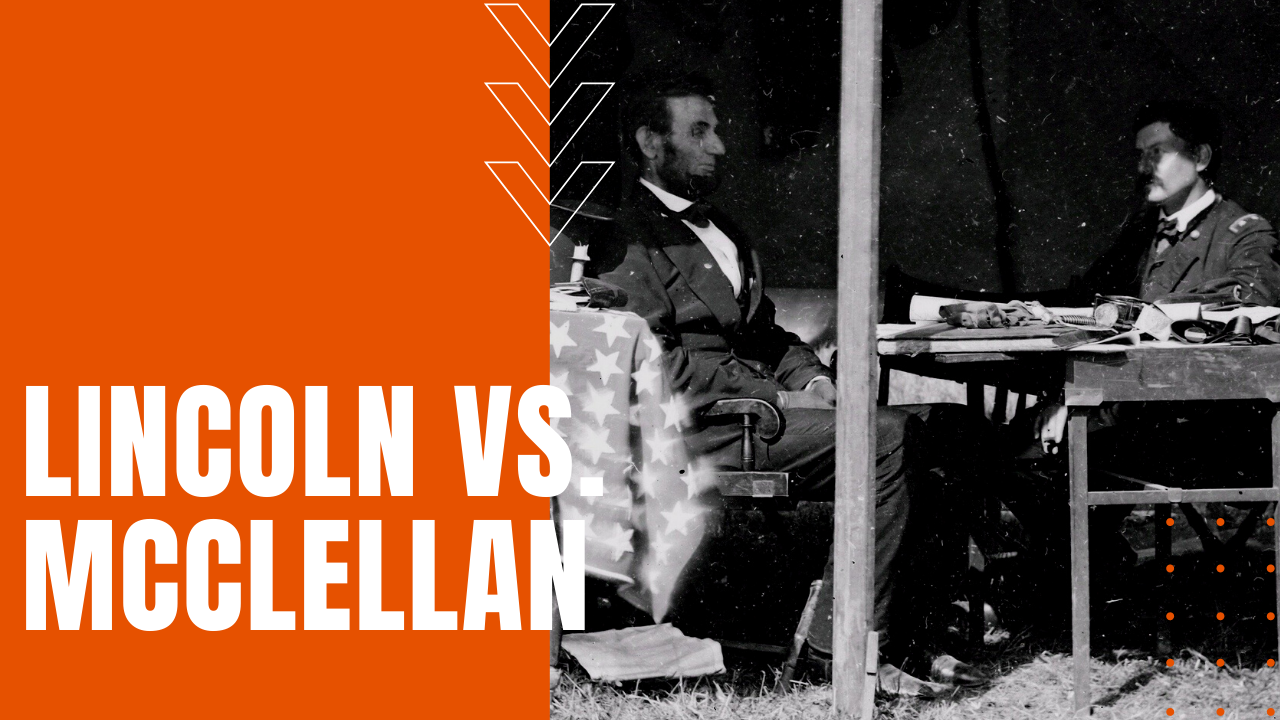Election of 1864: Lincoln vs McClellan

Beginning with his meteoric rise to command in 1861, Major General George B. McClellan, known as “Little Mac” for his Napoleonic dash and zeal, inspired the devotion of thousands in Union blue. By the middle of the war, however, McClellan’s failed 1862 Peninsula Campaign frustrated Union Army soldiers, prompting them to call for greater commitment from the home front.
Lincoln vs. McClellan
McClellan’s dismissal as Army of the Potomac field commander in November of 1862 stunned and saddened northern soldiers, but when Little Mac sided with the anti-war Democrats and ran for President, Union Army sentiment shifted away from McClellan in support of President Lincoln. Following more bloodletting at Chancellorsville and Gettysburg, the depleted ranks of the Army of the Potomac voted overwhelmingly against Democrats in the gubernatorial contests of 1863.
Demobilized enlisted men and junior officers from the Union Army rallied into the North’s major cities, forming social clubs in solidarity with likeminded veterans, toasting the prospects of victory, and marching in pro-war parades to sway the hearts of fence-sitters. Joining forces with war-ravaged veterans, torchlight parades filled city streets by night, each marcher convinced they were standard-bearers of righteousness against treason.
Such partisan angst meant the parades and rallies were not always peaceful, such as the Democratic torchlight parade of October 29th, 1864, when a band of anti-war Democrats stormed a Republican club, setting off a full-scale brawl in the streets.
Lincoln Reelected in 1864 Election
In the end, the Union soldier vote convincingly propelled Lincoln to a second term in office, effectively cementing victory and reunification with the rebel South firmly into the annals of American history.
Approximately 155,600 soldiers cast votes in the 1864 presidential election—33,700 for McClellan compared to 116,800 votes for Lincoln, while the Union Army as a whole reported 80 percent voter participation. Even more compelling, every state but one gave Lincoln a solid majority of its combined Union Army votes. In fact, soldiers from most states gave the Union ticket at least a 20 percent higher turnout than their civilian counterparts at home, shining a light on the power of the Union Army, both on and off the field of battle.
